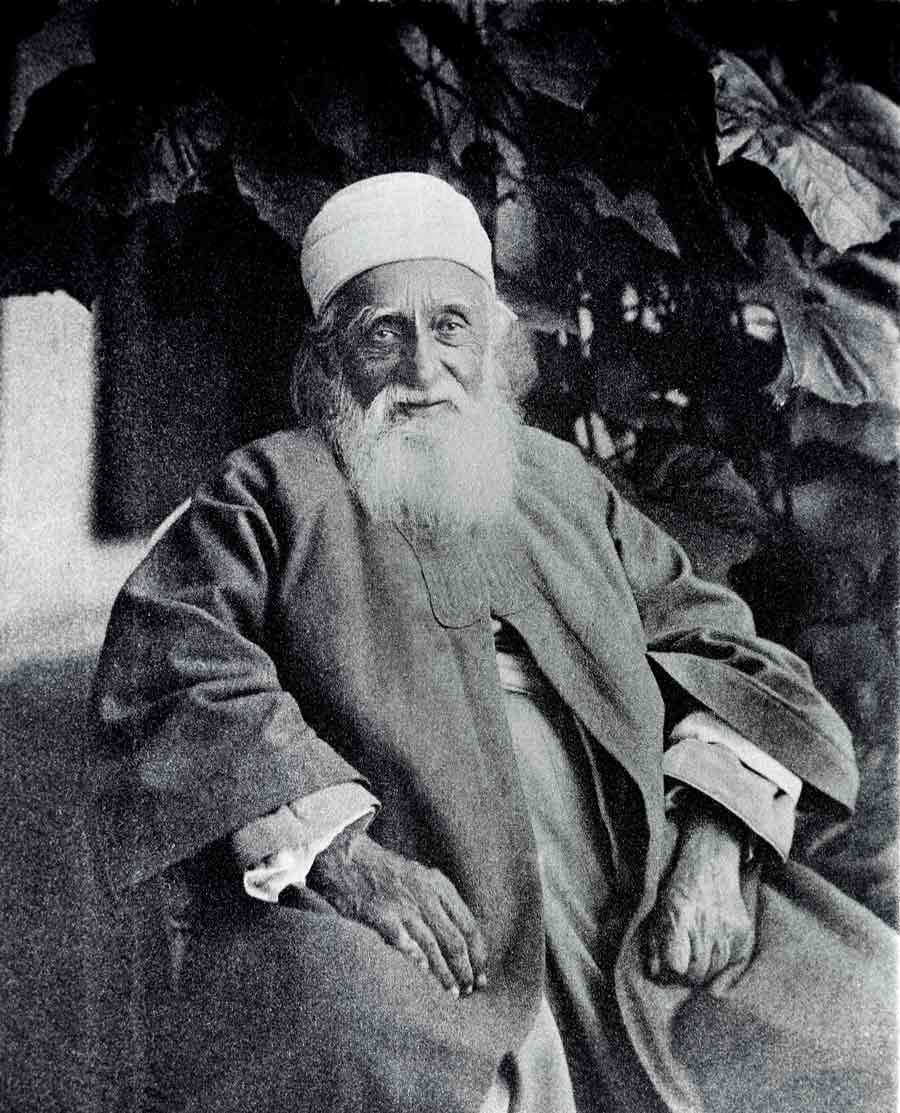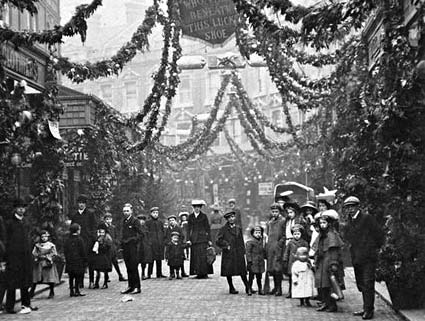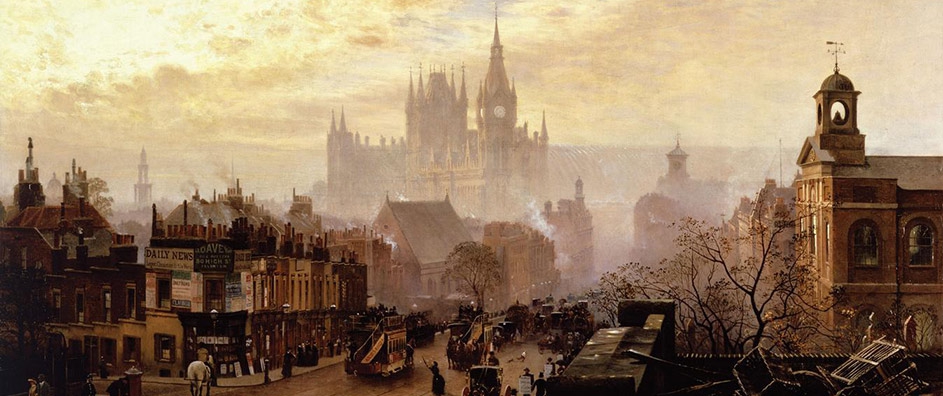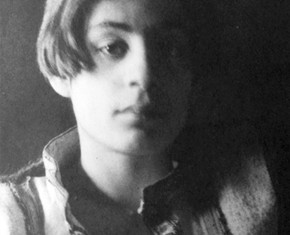The views expressed in our content reflect individual perspectives and do not represent the authoritative views of the Baha'i Faith.
Let me tell you about the magic of Abdu’l-Baha’s first Christmas in England — but before I do, let’s set the stage by exploring the history of the holiday, which few people know or understand.
Have you ever heard of Sextus Julius Africanus?

RELATED: The Extraordinary Life of Abdu’l-Baha
A Pagan Soldier Becomes a Christian – and Determines the Date of Christmas
First a pagan soldier in the Roman legions in the late 2nd Century A.D., Sextus Julius Africanus later converted to Christianity and became a widely-traveled Christian historian, teacher, and author. As his last name suggests, he was probably African — likely from the area we now call Libya — although he spoke several languages and traveled extensively throughout the Middle East.
Sextus Julius Africanus wrote a five-volume history of the world called Chronographiai. As far as anyone knows, no copy has survived — but some of his writing did, through subsequent historians like Eusebius, and they’ve had a major impact on those of us who live in the modern era in at least two ways.
First, he determined the supposed age of the world.
After that, he also determined the exact date of Christmas.
Why Is Christmas on December 25th?
Here’s how he did it: in his five-volume work, Sextus Julius Africanus wrote out the world’s presumptive timeline from the Biblical Genesis story of creation up to the year 221 AD. That time period — painstakingly assembled and calculated from a close reading of all of the genealogical history and the various “begats” in the Torah, the Tanakh (the Hebrew Bible), and the New Testament — made up exactly 5,723 years, by Africanus’ count. His calculations measured precisely 5500 years between creation and the incarnation (or Annunciation) of Jesus Christ, which placed the immaculate conception of Jesus on March 25th in the year 1 BC. Adding the standard human gestation period of nine months to that conception date gave Africanus December 25th – the day the world now celebrates as Christmas.
Even as far back as the second century AD, no one knew the precise date when the birth of Christ actually took place. Long before the widespread use of calendars, birth certificates, or the observance of regular birthdays, that great distance of time makes exact historical dates impossible to verify. For that reason, Sextus Julius Africanus made his computations. Despite his evidence, some later historians and scientists, including Isaac Newton, believed that the Christian world selected December 25th because the Romans celebrated the Southern winter Solstice on that day, which they called the bruma or the Sol Invictus.
But Africanus, who first measured the date with his carefully-calculated Biblical timeline, has now held sway in popular opinion, and on the Gregorian calendar, for eighteen hundred years. His original calculations are the reason we observe the birth of Christ when we do. With the exception of the Eastern Orthodox Church, which usually celebrates Christmas on January 7th in most places, December 25th has become Christmas for the masses — which brings us back to Abdu’l-Baha’s first Christmas.

How Abdu’l-Baha Celebrated Christmas
Not until 1911, when Abdu’l-Baha initially traveled to the West, did he encounter a modern Western celebration of Christmas. Released from forty years in Ottoman-era exile and imprisonment for being a Baha’i, he came to England from the Middle East, where few celebrated Christmas. Shoghi Effendi, the Guardian of the Baha’i Faith, wrote in his book God Passes By that among his hectic schedule of speeches and meetings and public addresses, Abdu’l-Baha:
…witnessed a performance of “Eager Heart,” a Christmas mystery play at the Church House, Westminster, the first dramatic performance He had ever beheld, and which in its graphic depiction of the life and sufferings of Jesus Christ moved Him to tears. – Shoghi Effendi, God Passes By
The drama, written by the English poet and playwright Alice Mary Buckton, who later received Abdu’l-Baha at her home in Byfleet Surrey, tells the tragic story of a woman who fervently prepares for the Christmas visit of Jesus, Mary and Joseph, but then vacillates when a homeless refugee family shows up at her door. You can read the play in its original form here.
This description of Abdu’l-Baha’s deeply emotional reaction to Eager Heart, written by Lady Blomfield (one of the co-founders, along with a large contribution from Abdu’l-Baha, of the charitable organization Save the Children) in her book The Chosen Highway, describes a remarkable occurrence:
[Abdu’l-Baha] wept during the scene in which the Holy Child and His parents, overcome with fatigue, and suffering from hunger and thirst, were met with the hesitation of Eager Heart to admit them to the haven of rest which she had prepared, she, of course, failing to recognize the sacred visitors. [Abdu’l-Baha], afterwards, joined the group of players.
It was an arresting scene. In the eastern setting. The Messenger in his eastern robes, speaking to them, in the beautiful eastern words, of the Divine significance of the events which had been portrayed. – The Baha’i World, Volume 4, p. 379.
Of course, Abdu’l-Baha was not a messenger of God, not a prophet or a manifestation – in the Baha’i Faith, Baha’u’llah, its founder and prophet, occupies that exalted station. However, many people who met Abdu’l-Baha, and experienced his regal humility and his devotion to serving humanity, thought of him that way.
So try to envision that actual Christmas vision, if you can. After the applause ended and the crowd had gone home, on the stage among the play’s backdrops, the son of the world’s newest prophet from the Middle East, dressed in flowing robes, tells the play’s actors about the true travails of Jesus Christ, so much alike and akin to the travails of Baha’u’llah and his own family.
RELATED: Who Was the First Baha’i?
Just released from four decades of exile and imprisonment, Abdu’l-Baha gathered a group of actors around him and explained the real meaning of Christmas. It’s hard to imagine the conversation they had, but it may have gone something like this passage from Abdu’l-Baha’s writings:
For a single purpose were the Prophets, each and all, sent down to earth; for this was Christ made manifest, for this did Baha’u’llah raise up the call of the Lord: that the world of man should become the world of God, this nether realm the Kingdom, this darkness light, this satanic wickedness all the virtues of heaven – and unity, fellowship and love be won for the whole human race, that the organic unity should reappear and the bases of discord be destroyed and life everlasting and grace everlasting become the harvest of mankind.
Since Baha’is believe that all the prophets of God are one – including Christ – those fortunate actors, rather than relying on the all-too-human interpretations of the meaning and timing of Christmas, literally got to hear it from the source.
You May Also Like
Comments

















In the Persian Calendar, the birth of Mithras was celebrated on the winter solstice, that is, on 21 December.
In the year 284, the Roman Emperor chose Mithraism as the official religion of the Empire. It was then that Mithras was named "Sol Invictus Mithras".
It was with Emperor Constantine, in the year 336, that Christianity was recognized as the official religion of the Roman Empire. The date of birth of Christ being unknown, the ...date of a feast already celebrated by the people (the birth of Mithras), around December 21, was chosen.
Let's see if we can find out more about this event.
Immaculate Conception is the birth of Mary without original sin, so she can give birth to the sinless Jesus.
The virgin birth describes the birth of Jesus without a human father.
https://en.wikipedia.org/wiki/Immaculate_Conception